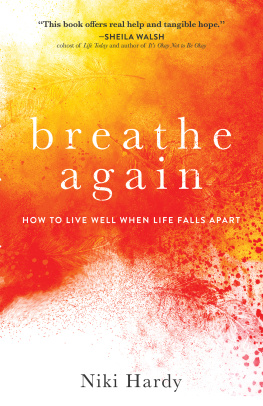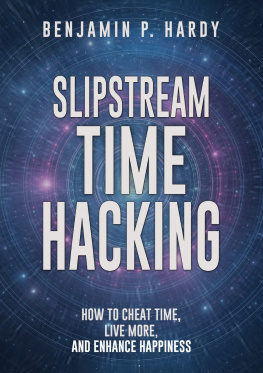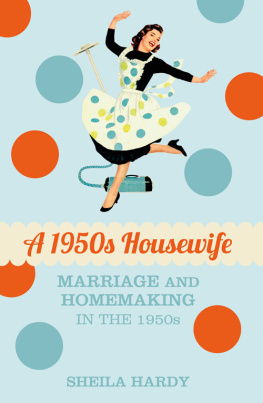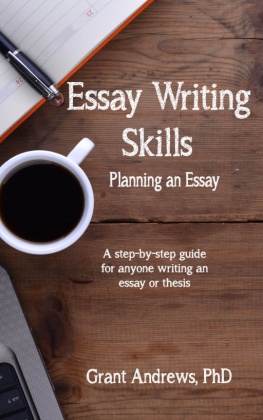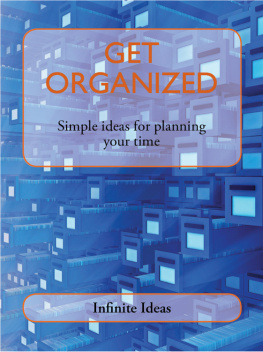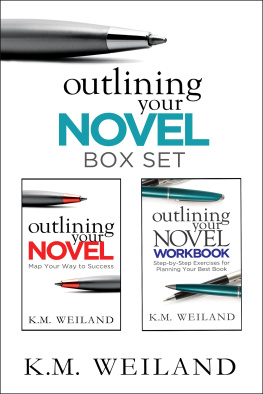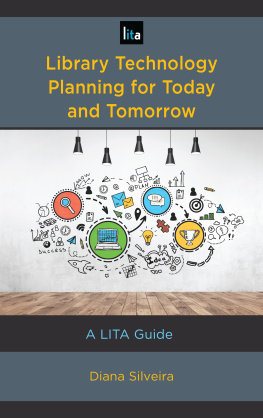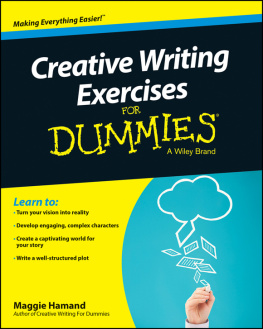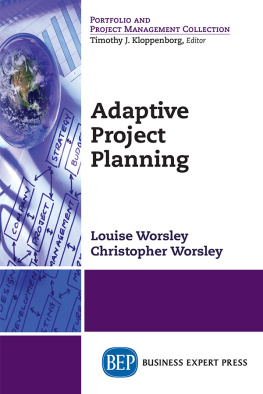Hardy - Planning your novel : ideas and structure
Here you can read online Hardy - Planning your novel : ideas and structure full text of the book (entire story) in english for free. Download pdf and epub, get meaning, cover and reviews about this ebook. year: 2014, publisher: [NLA Digital], genre: Home and family. Description of the work, (preface) as well as reviews are available. Best literature library LitArk.com created for fans of good reading and offers a wide selection of genres:
Romance novel
Science fiction
Adventure
Detective
Science
History
Home and family
Prose
Art
Politics
Computer
Non-fiction
Religion
Business
Children
Humor
Choose a favorite category and find really read worthwhile books. Enjoy immersion in the world of imagination, feel the emotions of the characters or learn something new for yourself, make an fascinating discovery.

- Book:Planning your novel : ideas and structure
- Author:
- Publisher:[NLA Digital]
- Genre:
- Year:2014
- Rating:4 / 5
- Favourites:Add to favourites
- Your mark:
- 80
- 1
- 2
- 3
- 4
- 5
Planning your novel : ideas and structure: summary, description and annotation
We offer to read an annotation, description, summary or preface (depends on what the author of the book "Planning your novel : ideas and structure" wrote himself). If you haven't found the necessary information about the book — write in the comments, we will try to find it.
Hardy: author's other books
Who wrote Planning your novel : ideas and structure? Find out the surname, the name of the author of the book and a list of all author's works by series.
Planning your novel : ideas and structure — read online for free the complete book (whole text) full work
Below is the text of the book, divided by pages. System saving the place of the last page read, allows you to conveniently read the book "Planning your novel : ideas and structure" online for free, without having to search again every time where you left off. Put a bookmark, and you can go to the page where you finished reading at any time.
Font size:
Interval:
Bookmark:
Fiction University's
Foundations of Fiction
Planning Your Novel:
Ideas and Structure
By
Janice Hardy
Published by Janice Hardy
Copyright 2014
This book is also available in print.
All rights reserved. No part of this publication may be reproduced or distributed in print or electronic form without prior permission of the author.
ISBN 978-0-9915364-0-5
Books by Janice Hardy
Foundations of Fiction Series
Planning Your Novel:
Ideas and Structure
Novels
The Healing Wars Trilogy
The Shifter
Blue Fire
Darkfall
Table of Contents
When I was first learning to write, I read every book I could on writing. Some were very helpful, others less so, but after a while I grew frustrated over a common advice element I kept running into.
I found plenty of advice on what I ought to be doing, but very little on how to actually do it.
I was inundated with writing rules that werent helpful. Explanations of techniques that made me feel I almost had it, but still didnt quite get it. Some of the advice was so complicated I felt Id never understand it enough to improve my writing.
I kept struggling and eventually figured out what everyone had been talking about. I also learned that sometimes, its easier to tell new writers, dont do X than it is to explain why not, and when that rule doesnt applyand that some new writers dont want to know the why, they just want to know the rules so they can get published. Most important, I learned that writing isnt so black and white, and its not about the rules at all.
Years later, I started teaching writing classes and swore Id not make my students struggle as I had done. I sought to explain the hows as well as the whys, so someone could really get what those writing rules were talking about. To help my fellow writers understand the process behind those rules and guidelines.
For example, I wasnt going to tell my students dont use adverbs; I was going to explain why relying on them would hurt their writing and show them the difference between bad versus good adverb usage. I wanted them to understand why that rule existed in the first placeand why its not exactly a set-in-stone rule.
Jump ahead a few more years and I started a blog, The Other Side of the Story, to share the things Id learned in ways that made them easier to understand. The hows and the whys.
A few more years later, I had a wealth of information compiled. Reorganizing it into writing guides was a natural progression, but I wanted the guides to follow the same philosophy Id always hadwriting whys made simple. I wanted my guides to be instructive and helpful, with clear examples and tips writers could apply directly to their works-in-progress and see positive results.
I wholeheartedly believe a solid writing foundation allows writers to grow and improve with the confidence that they get it, and arent just following a rule because a book or blog said so. Confident writers understand how the myriad of techniques and rules work together to craft a story, and how to use those tools to craft the best novel they can. That foundation, that confidence, makes the journey from idea to novel a little less scary and a lot more productive.
A lot of work goes into writing a novel, and it all starts with planning that novel. To build a strong novel, start with a strong foundation.
And thats where this book comes in.
Different writers write novels in different ways, but each novel starts with a plan. Sometimes that plan is nothing more than a vague idea or a character who wont stop whispering in your ear at night; other times its a comprehensive summary of every scene in the book. However you do it, you decided to write a novel and then begin that process.
The goal of a novel plan is to develop enough information about that novel to be able to write it. How much information depends on the writer, because we all have a different process. Thats one reason writing advice can be so frustrating: What works for one writer might not work for you, and vice versa.
Planning Your Novel: Ideas and Structure is a series of self-guided workshops designed to lead you through developing a novel idea, crafting a summary line, creating a summary blurb, and finally, writing a working synopsis. Each workshop covers one step of that process, with smaller sections that focus on individual topics within that step. At the end of this book, youll have a solid plan to craft a novel from.
For those with completed manuscripts already, this book can aid you during revisions and even help you fix problem areas. The workshops and exercises are just as useful in tightening a first draft as they are in writing one.
Workshops : The workshops go step by step through planning and developing a novel. Each workshop offers focused topics with exercises and brainstorming sessions, tips and tricks, plus definitions of the common writing terms used in the workshop.
Exercises : These draw from the workshop and guide you through individual pieces of the novel-planning process. They build upon each other to take an idea and develop it into a plan (and plot) for a first draft.
Assignments : The assignments incorporate everything learned in the individual workshops and offer a larger step in the process. As the exercises build off the individual sections of a workshop, the assignments build off the workshops as a whole.
"Something to Think About Prompts : These prompts provide additional questions or advice to consider how an idea could be developed, and opportunities to take notes while ideas are still fresh. They also offer warnings for common pitfalls about a topic.
Brainstorming Questions : The brainstorming questions are designed to get you thinking about aspects of that section, and help you figure out what you want from your novel as it pertains to that section.
Throughout the book, youll find exercises and writing prompts to help you develop your idea into a novel plan. I highly encourage you to do the exercises, take notes, and write down thoughts as prompted throughout the sections (as well as any ideas you might have as you read). Even when you know the answer to a posed question, the act of putting it on paper crystallizes the thought and clarifies your idea.
Its not uncommon to feel we know something, but then when we write it down, its not as developed or clear as we first thought. This is one reason novels stall after a few chapters or we get stuck even though we know what should happen. Writing it down really does make the process easier.
As you do the exercises, feel free to brainstorm and pull in ideas that interest you. Sometimes you wont know what a detail will be until you answer one of the later questions. For example, you might know from one workshop that your protagonist has a dark secret, but not what that secret is until you reach an exercise that forces you to identify it. Or you might think of something in one workshop you hadnt considered before, but which really works for an exercise in an earlier workshop. Writing can be very organic, so dont be afraid to jump around if you need to. You can always go back and revise any exercise or assignment after youve done them all. Let your subconscious run free and see where it takes you.
Youll likely notice that certain information or ideas will start showing up throughout the various exercises. This repetition is good, as it means youre pinpointing what matters to the novel and adding deeper layers to those points, connecting them to other valuable elements of the story. These common elements or details are usually the core aspects of the novelthe heart and soul of the tale you want to tell. When you see these recurring ideas, try embracing them and developing them as much as possible. Theyre probably your subconscious telling you whats important.
Next pageFont size:
Interval:
Bookmark:
Similar books «Planning your novel : ideas and structure»
Look at similar books to Planning your novel : ideas and structure. We have selected literature similar in name and meaning in the hope of providing readers with more options to find new, interesting, not yet read works.
Discussion, reviews of the book Planning your novel : ideas and structure and just readers' own opinions. Leave your comments, write what you think about the work, its meaning or the main characters. Specify what exactly you liked and what you didn't like, and why you think so.

